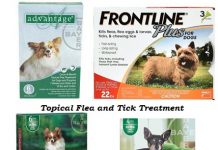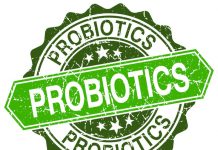Welcoming a new puppy into your home is a joyous occasion, filled with wagging tails and endless cuddles. As you embark on this heartwarming journey, ensuring the health and well-being of your furry friend is paramount. Puppies, with their boundless energy and curious nature, are prone to encountering various common illnesses. However, with the right knowledge and proactive care, many of these ailments can be prevented, allowing your puppy to thrive. In this article, we will guide you through essential health tips, offering warm and practical advice to help keep your puppy happy, healthy, and full of life. Whether you’re a first-time puppy parent or a seasoned dog lover, these insights will empower you to nurture your pup with confidence and love.
Understanding Your Puppys Nutritional Needs for a Strong Immune System
Ensuring your puppy has a well-rounded diet is key to building a robust immune system that can fend off common illnesses. Puppies require a balance of essential nutrients to support their rapid growth and development. Here are some critical components to consider:
- Proteins: The building blocks for your puppy’s body, proteins are essential for growth and repair. Look for high-quality animal proteins such as chicken, beef, or fish.
- Fats: These provide a concentrated source of energy and aid in the absorption of fat-soluble vitamins. Healthy fats like omega-3 and omega-6 fatty acids are vital for skin health and coat condition.
- Vitamins and Minerals: Ensure your puppy’s diet includes a variety of vitamins and minerals to support immune function. Vitamins A, C, and E, along with zinc and selenium, are particularly important for immune health.
Beyond the basics, consider incorporating foods that naturally boost immunity. Probiotics found in yogurt can support gut health, which is closely linked to immune strength. Antioxidant-rich fruits and vegetables, like blueberries and sweet potatoes, provide additional support against free radicals and inflammation. Always consult your veterinarian to tailor a diet plan that meets the specific needs of your puppy’s breed, size, and health status.
Creating a Safe and Clean Environment to Minimize Health Risks
Ensuring your puppy grows up healthy and happy starts with maintaining a clean and safe living space. A tidy environment not only reduces the risk of infections but also promotes overall well-being. Here are some essential tips to help you create an ideal space for your furry friend:
- Regular Cleaning: Keep your puppy’s living area clean by vacuuming and disinfecting floors and surfaces frequently. Use pet-friendly cleaning products to avoid harmful chemicals.
- Proper Waste Disposal: Always dispose of waste promptly and sanitize the area to prevent the spread of bacteria and parasites.
- Fresh Water and Food: Ensure that your puppy has access to fresh water and clean food bowls. Wash the bowls daily to prevent the growth of bacteria.
- Toy Maintenance: Regularly wash your puppy’s toys to remove dirt and germs. Opt for toys that are easy to clean and durable.
By adhering to these guidelines, you can significantly reduce the health risks for your puppy. A clean environment not only keeps illnesses at bay but also provides a comforting space for your pet to thrive.

Essential Vaccinations and Regular Vet Visits for Preventative Care
Ensuring your puppy receives the right vaccinations and regular vet visits is crucial for their long-term health and happiness. Vaccinations are your puppy’s first line of defense against a variety of preventable diseases. Your veterinarian will provide a vaccination schedule that typically includes core vaccines such as:
- Canine Parvovirus
- Distemper
- Canine Hepatitis
- Rabies
These vaccinations are usually administered in a series of shots starting at 6-8 weeks of age and continuing until they are about 16 weeks old. Regular vet visits are equally important as they allow for early detection of potential health issues. During these visits, your vet will conduct a comprehensive health check, including:
- Physical examination
- Parasite control and prevention
- Nutrition and diet recommendations
- Behavioral guidance
By staying on top of your puppy’s health with these essential vaccinations and routine check-ups, you’re laying a strong foundation for a life full of wagging tails and happy memories.
















